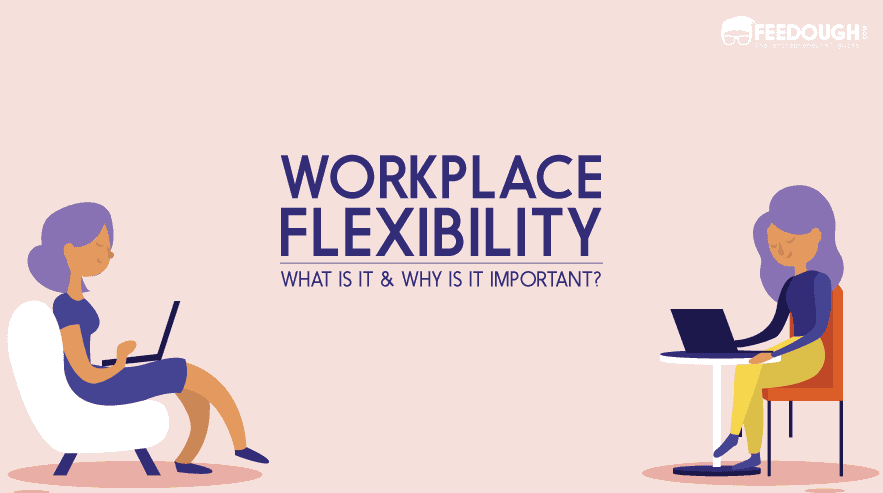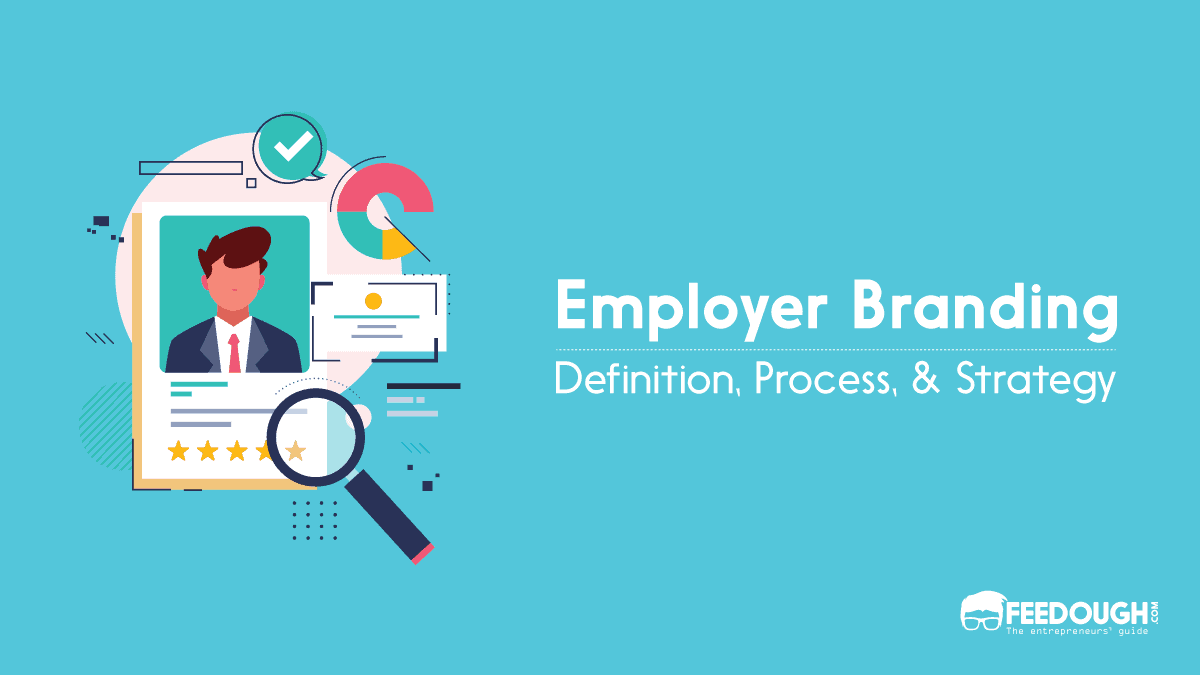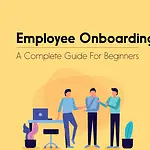Your employees might love what they do and your motivation strategies may even help them improve their performance and boost self-confidence. But no one likes to work with someone who only cares for the organisation and not his employees’ individual needs.
Your employee could be a dad who wants to spend more time with his 8-year-old, a daughter who needs to take her ageing parents to doctors every week, or a guitarist who wants to devote some time to his hobby too.
This is where work flexibility comes in. It is when you as an employer give more space to your employees and focus mainly on the work and not when, where, and how the employee is doing it.
What Is Work Flexibility?
Work flexibility (also called workplace flexibility) is when the employer gives some or full freedom to its employees to choose the time (when), location (where), and manner (how) in which they work to help align organisation goals with the individual goals.
Work flexibility involves employers to have more concern for their employees and realize that they have a hectic life beyond work as well. It involves providing them with options and alternatives to help them meet the demands of both professional and personal lives.
This not only boosts employee satisfaction but also results in them becoming more productive and hard-working.
The Importance Of Flexibility At Work
Flexibility and freedom are important both for increasing employee satisfaction and reducing employee turnover.
In today’s world, high calibre clients look for a job offers which are not only favourable in terms of the pay but also in terms of advanced benefits, technical support, and the flexibility to help them achieve peak performance.
Stats show that 78% of the employees feel their productivity increase when work arrangements are flexible. And 77% consider flexible work arrangements a major consideration while applying for and evaluating job opportunities.
Advantages of Workplace Flexibility
A flexible workplace is good for both the employer and the employee. It not only helps increase productivity in the organisation but also increases the satisfaction of the employees which in-turn results in many other advantages.
From the Employee’s Perspective
- More time and space to cater to personal needs: Workplace flexibility results in more freedom to better meet family and personal needs.
- Increased job satisfaction: When more flexibility is provided in terms of when, what, and how to work, it boosts the confidence of the employee and increases job satisfaction.
- Enhanced productivity: Increased job satisfaction and more freedom to choose the way of working enhances the productivity of the employees, which eventually opens up more future opportunities.
From the Employer’s Perspective
- Less employee turnover: Since workplace flexibility increases the employees’ job satisfaction, it helps in reducing employee turnover in the organisation.
- More productivity: More flexibility reduces tardiness and absenteeism and hence increases the productivity within the organisation
- Better company image: Flexibility in the workplace usually enhances the company image as a family-friendly place to work with a good workplace culture. This attracts more job seekers to choose the organisation over others.
However, some people also argue about the cons of work flexibility being less efficient work due to lack of supervision, and no clear dividing line between home and work.
Types Of Flexibility In The Workplace
Most of the companies witness the benefits of incorporating flexible work policy and alternative work arrangements more than the cons. These alternative work arrangements can be broadly categorized into two types –
- Formal Flexibility: Which is agreed upon in the job contract.
- Informal Flexibility: Which is a result of mutual understanding between the employer and the employee.
Both of these types are necessary to build trust within the organisation. These types can further be classified into –
- Flexibility in Work Scheduling: A provision for any work schedule other than the standard work schedule. This includes flextime (only focus on the hours worked not when worked), compressed workweeks (working full time in less than 5-day workweek), and flexible shift and breaks arrangements.
- Flexibility in Amount of Work Hours: Offering part-time work or reduced hour schedule to people who need it.
- Flexibility in the Place of Work: Letting employees work from home or a satellite work centre to help them cater to their personal needs.
Examples Of Flexibility At Work
One should not ignore the needs of the employees while forming company policies. Doing so not only keeps the employees happy but also increases the productivity of the whole organisation. Here are a few examples of flexibility at work –
- Telecommuting: Telecommuting is a job policy where the employee comes to office semi-regularly (1-3 times a week) and does most of his work remotely.
- Remote Working: Employees engaged in remote work perform their tasks while entirely away from the office. It can be a permanent position or temporary and the employees can be hired from around the world.
- Condensed Workweeks: A policy which lets the employees complete their 40-hour shift within the first 4 days of the week and take the next 3 days off.
- Customized Working Hours: Letting the employees choose their own work hours.
- Part-Time Jobs: Many companies offer not-so-important jobs to part-time workers. This eventually helps in increasing productivity and even costs less to the company.
- Job Sharing: A common flexible work policy which involves two or more part-time workers sharing a full-time job.
Bottom-Line?
Work flexibility is a one of the most important factors that should be considered while defining the company policies. If your employees’ work isn’t hampered irrespective of them not working from the office, offer them to work from home. If it is possible to offer flexible timings, inform your employees about the same.
A flexible workplace is a great satisfaction booster and one should never ignore its importance.
Go On, Tell Us What You Think!
Did we miss something? Come on! Tell us what you think about our article on workplace flexibility in the comments section.
A startup consultant, digital marketer, traveller, and philomath. Aashish has worked with over 20 startups and successfully helped them ideate, raise money, and succeed. When not working, he can be found hiking, camping, and stargazing.









